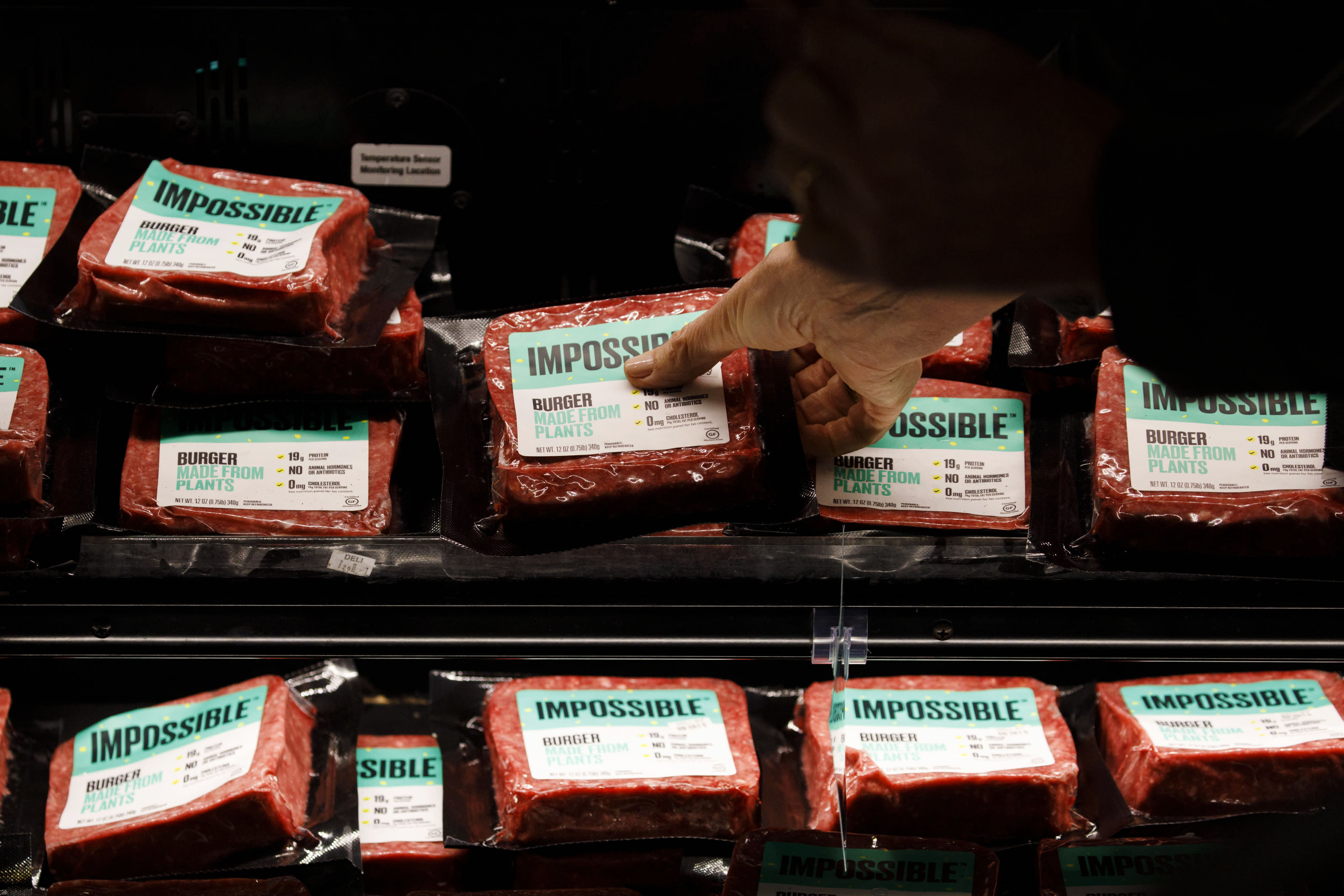
A customer picks up a package of Impossible Burger plant based meat during the Impossible Foods Inc. grocery store product launch at Gelson’s Markets in Los Angeles, California, U.S., on Friday, Sept. 20, 2019.
Patrick T. Fallon | Bloomberg | Getty Images
Impossible Foods is suing Motif FoodWorks for patent infringement, claiming that the start-up’s heme technology too closely imitates its own signature ingredient.
Both companies are privately owned, although Impossible is much larger, with a valuation of $9.5 billion.
Impossible’s beef and pork substitutes use soy leghemoglobin, produced from genetically modified yeast, to imitate the taste and aroma of real meat. Along with Beyond Meat, Impossible has helped rejuvenate the market for vegetarian burgers. Several other companies have jumped on the trend, ranging from industry giants to small start-ups.
Motif has raised $343.5 million from investors like Bill Gates and was valued at $1.23 billion last year, according to Pitchbook. It was spun out of biotech start-up Ginkgo Bioworks. When Motif launched in 2019, Ginkgo co-founder and CEO Jason Kelly told CNBC that Impossible’s success inspired the formation of Motif, which develops key ingredients for making plant-based proteins and leaves the rest to food companies.
In December, Motif announced that its first new food technology Hemami would be commercially available to large-scale customers. The Food and Drug Administration had deemed the ingredient as “generally recognized as safe.”
In its complaint filed in federal court in Delaware on Wednesday, Impossible alleges that Motif’s Hemami infringes on its patent for its trademark heme ingredient. While Motif’s version uses bovine myoglobin, it does follow a similar process to create the ingredient, which can then be used in meat substitutes, according to court filings.
According to Impossible, its patent covers the invention of a beef substitute that uses a muscle replica including a heme-containing protein, at least one sugar compound and one sulfur compound. It also protects against the invention of a meat alternative that mimics meat through a fat tissue replica that uses at least one plant oil and a denatured plant protein.
“We applaud other companies’ efforts to develop compelling plant-based products, but we do not tolerate attempts to undermine our brand or products through the deliberate and unauthorized infringement of our intellectual property,” Impossible said in a statement to CNBC.
Motif did not immediately respond to a request for comment from CNBC.



